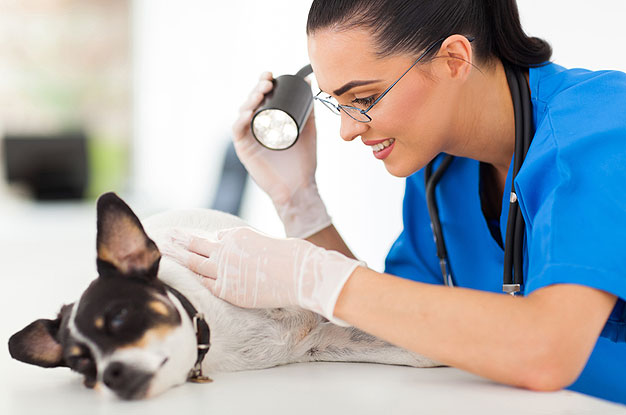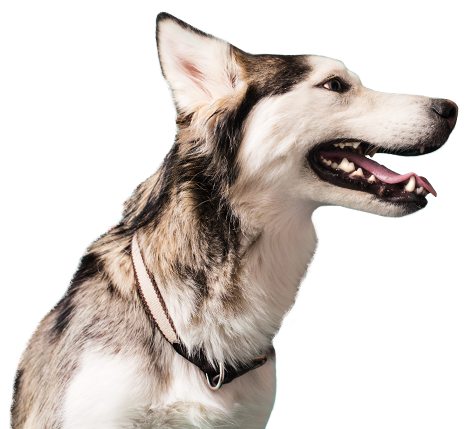
In part 1 of our look at why dogs smell, we discussed the fact that ears can play a part in adding to the foul smell of your dog. Let’s look into some more reasons your dog’s odor can be so strong.
Dog Skin Problems
Perhaps the smell that is hanging in the air in your home is coming from your dog’s skin.
Some important terms to recognize:
- Dermatitis is simply “inflammation of the skin”.
- Pyoderma is a bacterial infection in the skin. It may be superficial or deep in the tissue of the skin.
- Dermatophytosis is a fungal infection on the dog’s skin.
- Atopy is the chronic allergic condition of the skin of dogs that can be triggered by normal, harmless substances like grass, mold, mites and other environmental allergens.
It’s usually very obvious when your pet has a skin problem. You may be able to smell it, but more likely you can see it. Look for signs of hair loss, crusts or areas of bleeding. Our dogs with atopyusually have symptoms starting at a young age. Common areas involved are the feet (constant licking), ears (hot and itchy) face (rubbing muzzle) and possible the underside of the body.
Constant licking will cause the hair to turn red. This is very obvious with white haired dogs. I see many dogs with red feet. They are often Poodles, Westies, Bichons and Yorkies. If your dog has red feet they may have a skin problem.
Fleas
Fleas can be a serious problem for dogs with regards to skin problems. Many dogs are actually allergic to a protein in the saliva of a flea. Itchiness, or pruritis, can occur right away but can also last for two weeks from just one flea bite. The location at the tail base, where the tail meets the body, and down the back legs is where dogs will chew when they are reacting to a flea bite allergy. This is textbook for a flea allergy. These dogs need to be on the best flea control every monthand have all other pets in the household — including cats — on good flea control.
Chronic Skin Inflammation
Regardless of the cause of inflammation, the surface of the skin will grow more bacteria. This is what will contribute to the smell of your dog. Chronic inflammation will change the skin greatly. You may see the skin darken and turn black. It will thicken and wrinkle.
More serious conditions may require a skin biopsy to get to the bottom of the problem. Often times, the medications dispensed to you for your dog, may need to be given for several weeks. Medicated dog shampoos are very helpful and may need to be preformed several times a week. Keep in mind that you may lose some of the effectiveness of your topical products when you strip the skin clean. Remember that Aloe & Oatmeal shampoo is extremely mild. We prefer you use it on dogs with normal skin and dogs using topical flea products.
Treating Dog Skin Inflammation
We do not recommend using Aloe & Oatmeal shampoo for dogs with skin conditions. We need to use products that remove excessive scale, decrease the microbes on the skin and flush the follicles. Because the skin is in “hyper mode”, the skin you clean will slough off in about 3 days (instead of the normal 3 weeks) and the old smell will return. This is why frequent shampooing is necessary. Anti-inflammatory medication like prednisone is extremely beneficial in calming the skin, decreasing the heat, and slowing the turnover of skin cells.
Remember that dogs with long hair are often overlooked with their skin conditions. Always look at areas where the hair looks wet. Chewing the skin with long hair will always lead to pyoderma. It is imperative to make a wet lesion dry. Shaving the hair from the area is paramount. It may be necessary to use an Elizabethan collar to prevent more chewing. Remember, dogs will always lick anything that they can smell. This means that they will always lick at a skin infection or any abrasion on the skin. This is not helpful. It only adds fuel to the fire.

Contact Us
Regular check ups with a veterinarian are important for your pet's health. Contact us today to schedule your next appointment.





